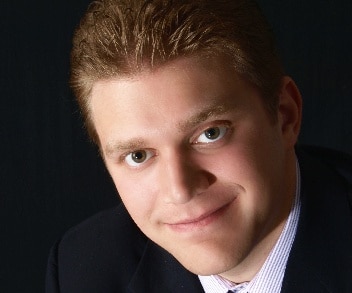Editor’s Note:
This post (in two parts) builds upon email correspondence the author sent to Robert F. Kennedy, Jr. and key members of his Make America Health Again (MAHA) team beginning in November 2024. It aims to illuminate alignment between three principles (and related applications) of person-centered Learning Health Systems (LHSs) and the three stated overarching goals of MAHA. While there can and should be vigorous debate whether or not policies and actions of the new administration will actually achieve these stated goals, the author’s purpose is to illuminate the ways LHSs (and especially patient empowering aspects of LHSs) can underpin and accelerate our progress toward achieving goals for a healthier America.
The Rule of Three
The rule of three makes storytelling more captivating, marketing more compelling, and comedy more humorous. Three represents the smallest number that illuminates an emerging pattern. Perhaps that is why, in January 2007, Steve Jobs kicked off one of his most memorable product pitches by promising to introduce three brand new Apple products: a touchscreen iPod, a breakthrough Internet communications device, and a phone. Disruptive transformation innovation happened when these three products were synergistically fused into one powerful device, the iPhone.
In November 2024, Dr. Casey Means appeared on HBO’s Real Time with Bill Maher. Describing the Make America Healthy Again (MAHA) movement, Dr. Means articulated three overarching tasks then President-elect Donald Trump would charge Robert F. Kennedy, Jr. to make happen as his choice to lead the United States Department of Health and Human Services (HHS). To paraphrase Dr. Means, these MAHA objectives would be:
- To reverse the trend of America’s chronic disease epidemic so that we can show up to our nation’s 250th birthday on July 4, 2026 stronger than ever;
- To generate gold-standard, uncompromised, evidence-based research to inform our health guidelines;
- To eradicate corruption from our health agencies.
A disruptively transformative vision for health predating MAHA by at least seventeen years (an important number in its own right, as it represents the mean lethal lag in evidence translation from bench to bedside), encapsulates three synergistic collaborative efforts that, interestingly, map almost 1:1 as enablers of the three respective articulated MAHA overarching objectives, encompassing:
- A disruptive vision of patient empowerment anchored in LEARNING;
- A novel transdisciplinary science of learning systems for transforming HEALTH;
- A grassroots movement to combat abuses of power in anti-learning SYSTEMS.
Learning to Empower Individuals to Reverse Chronic Disease Trends
These initiatives readily fuse into one disruptive concept called the Learning Health System (LHS). In 2007, the same year that Steve Jobs released Apple’s iPhone, the National Academy of Medicine (then, Institute of Medicine), released a workshop report about the “Learning Healthcare System” vision (and subsequently, “Learning Health Systems”). The NAM described this vision as, “one in which progress in science, informatics, and care culture align to generate new knowledge as an ongoing, natural by-product of the care experience, and seamlessly refine and deliver best practices for continuous improvement in health and health care.” Put another way, LHSs capture real-world evidence related to health, harness the power of analytics to learn and validate trustworthy knowledge, and mobilize such actionable knowledge into the hands of patients and clinicians (and all health stakeholders) to engender virtuous cycles of continuous improvement and ultimately better health.
A decade earlier, a parallel democratizing thread helped weave it together. Since the 1990s, Joseph Kanter, a frustrated patient, advocated to ensure that, while preserving privacy and putting the patient at the center, our health system would learn from the real-world health experiences of every patient, for every patient. Kanter mobilized a movement to ensure that one day every decision affecting health is informed by actionable knowledge of “what works best”. Many years before Robert F. Kennedy, Jr. proclaimed that “Ultimately, the only thing that will save our country is if we choose to love our kids more than we hate each other,” Kanter urged stakeholders at every point on the health compass, “Let’s all work together to give the gift of health to our children and our nation.”
In parallel, myriad patient advocates championed their rights to access and use their data, to share their stories (including a movement started by an artist for patients to wear business jackets featuring paintings depicting their personal health journeys), and to have access to trustworthy knowledge to underpin informed decisions. So-called e-patients fought valiantly to realize LHSs by and for all health stakeholders, recognizing that in dollars and in lives lost, we could not afford a health system marked by knowledge hoarding (and information blocking) and domination by “elites”.
To reverse the key indicators of chronic disease, merely knowing what works is necessary but not sufficient. The empowerment of patients and all health stakeholders with actionable knowledge to make better informed choices affecting health, coupled with the autonomy to freely make such choices, will be an unstoppable force for health. When fused with a novel transdisciplinary science to generate uncompromised evidence-based research, as well as an emerging collaborative approach to combating corruption utilizing LHSs principles (see Part 2 of this post), together these synergistic foundational elements hold the promise of empowering every American to actually Make America Healthy Again together.
Joshua C. Rubin, JD, MBA, MPH, MPP is a Clinical Assistant Professor of Learning Health Sciences at the University of Michigan Medical School Department of Learning Health Sciences. He is also the Executive Director and Vice President of the Board of Directors of the Joseph H. Kanter Family Foundation. On a pro bono basis, Rubin serves as Founding President and CEO of the Learning Health Community. He is a Lifetime Member of the Society for Participatory Medicine. He can be reached on X @JoshCRubin







Recent Comments